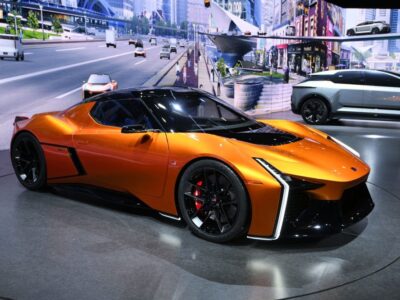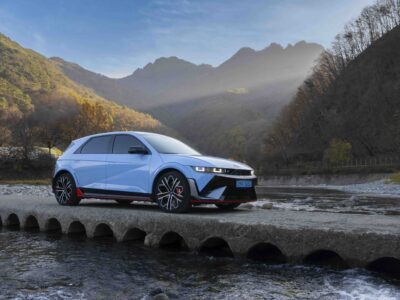(Bloomberg) —
The odds Audi decides to start building vehicles in the U.S. are rising as parent Volkswagen AG electrifies its lineup, the luxury-car maker’s chief executive officer said.
The VW group’s strategy to bring down the cost of electric vehicles involves developing common platforms to underpin models across its many brands to conserve costs. The first, dubbed MEB, is the base for the ID.4 sport utility vehicle already made in Germany and going into production in Chattanooga, Tennessee, next year.
Since these architectures will be used all over the world, “the potential to put an Audi car, production-wise, into the U.S. is even higher than now,” CEO Markus Duesmann said Friday on Bloomberg Television. “The likelihood of us producing in the U.S. is there.”Play Video
VW’s premium-car brand has undergone an overhaul to be more efficient and help the group overtake Tesla Inc. as the world’s leading EV maker. After initial efforts to narrow technology gaps with Tesla got off to a bumpy start, Audi formed an engineering task force to develop a car code-named Landjet.
A concept vehicle debuting next month called Grandsphere is expected to offer clues on Landjet, which will use a new software stack that allows for highly automated driving. The model is slated to go into production around the middle of the decade.
Duesmann’s comments are another indication VW sees potential for faster uptake of EVs in the U.S. Last month, CEO Herbert Diess told Bloomberg TV that the company will decide this quarter on building more electric models in the country.
Read more: VW Readies ‘Massive’ Rejig to U.S. Plans on Biden’s EV Shift
From 2026 onward, all of Audi’s new cars will be fully electric. Its last combustion-engine model will be an SUV aimed for the U.S. In China, Audi’s largest market, the automaker is considering making combustion-engine cars beyond 2033 to cater to local demand.
Audi expects to lift returns from EVs to the level of combustion-engine models in two or three years, helped by tapping economies of scale within the VW group that allow the brand to share expenses for key components. Although Audi has projected sales to bounce back from last year’s pandemic disruptions, the global semiconductor chip shortage is poised to hit earnings in the second half.
–With assistance from Christoph Rauwald.
© 2021 Bloomberg L.P.





